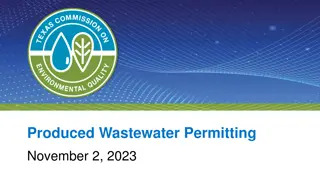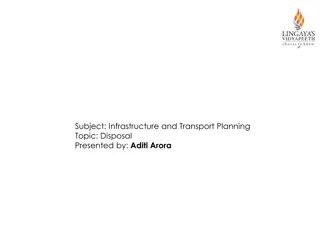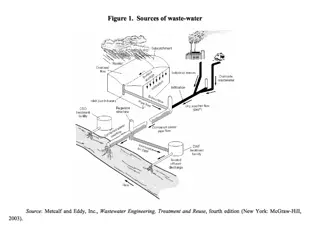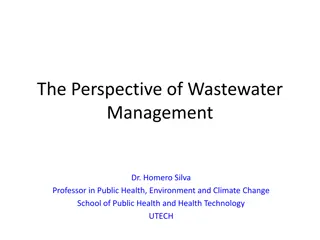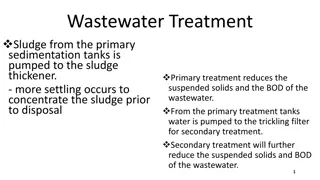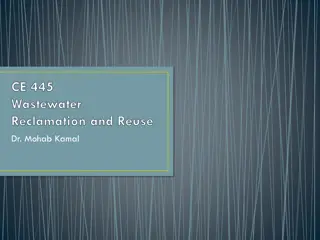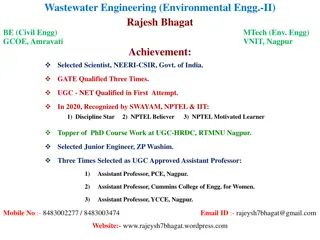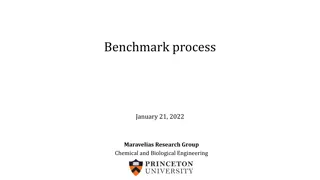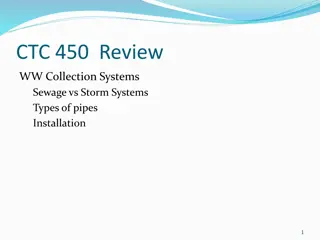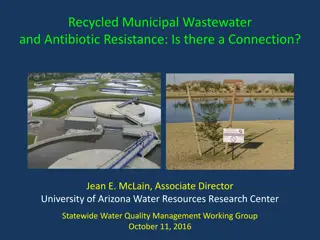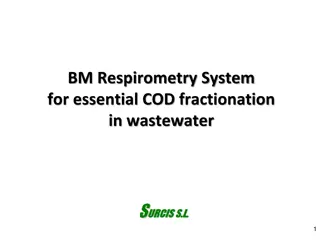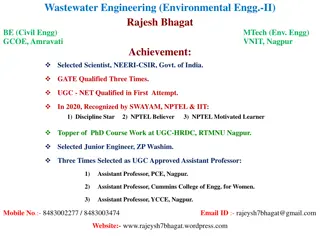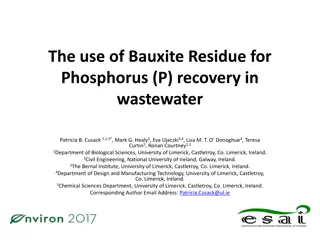The Role of Decentralized Wastewater Treatment in Reducing Environmental Impact
Explore the role of decentralized wastewater treatment in reducing environmental impact. Learn how DWWT improves water quality, conserves resources, and promotes sustainable wastewater management.
Download Presentation

Please find below an Image/Link to download the presentation.
The content on the website is provided AS IS for your information and personal use only. It may not be sold, licensed, or shared on other websites without obtaining consent from the author.If you encounter any issues during the download, it is possible that the publisher has removed the file from their server.
You are allowed to download the files provided on this website for personal or commercial use, subject to the condition that they are used lawfully. All files are the property of their respective owners.
The content on the website is provided AS IS for your information and personal use only. It may not be sold, licensed, or shared on other websites without obtaining consent from the author.
E N D
Presentation Transcript
The Role of Decentralized Wastewater Treatment in Reducing Environmental Impact
An Overview As water scarcity becomes a growing global concern, effective wastewater management is crucial. Traditional centralized wastewater treatment systems are costly, resource-intensive, and often inadequate in remote or rapidly growing areas. Decentralized wastewater treatment (DWWT) presents a sustainable solution, reducing environmental impact while promoting water reuse and conservation.
What Is Decentralized Wastewater Treatment? Decentralized wastewater treatment refers to localized treatment facilities that operate independently or in small networks. These systems treat wastewater at or near the source, reducing reliance on large-scale infrastructure and minimizing transportation costs. DWWT is particularly beneficial for rural communities, industrial sites, and eco-friendly developments.
Environmental Benefits of Decentralized Wastewater Treatment REDUCES WATER POLLUTION ENHANCES WATER CONSERVATION MINIMIZES ENERGY CONSUMPTION DECREASES INFRASTRUCTURE STRAIN
Reduces Water Pollution By treating wastewater close to its source, DWWT prevents untreated effluent from entering rivers, lakes, and oceans. This helps maintain water quality and protects aquatic ecosystems.
Enhances Water Conservation Many decentralized systems integrate water reuse technologies, allowing treated wastewater to be repurposed for irrigation, industrial processes, or groundwater recharge. This reduces freshwater demand and promotes sustainable water management.
Minimizes Energy Consumption Compared to centralized treatment plants, decentralized systems require less energy for wastewater transport and treatment. This leads to lower carbon emissions, making DWWT an eco-friendly alternative.
Decreases Infrastructure Strain Expanding centralized wastewater systems requires significant capital investment and land use. DWWT alleviates this burden by offering scalable and flexible solutions tailored to local needs.
Conclusion Decentralized wastewater treatment plays a vital role in reducing environmental impact by improving water quality, conserving resources, and lowering energy use. As sustainability becomes a priority, adopting DWWT can pave the way for more resilient and eco-conscious wastewater management solutions.
THANK YOU Contact Us +1-720-222-4739 info@r3sustainability.com www.r3sustainability.com



